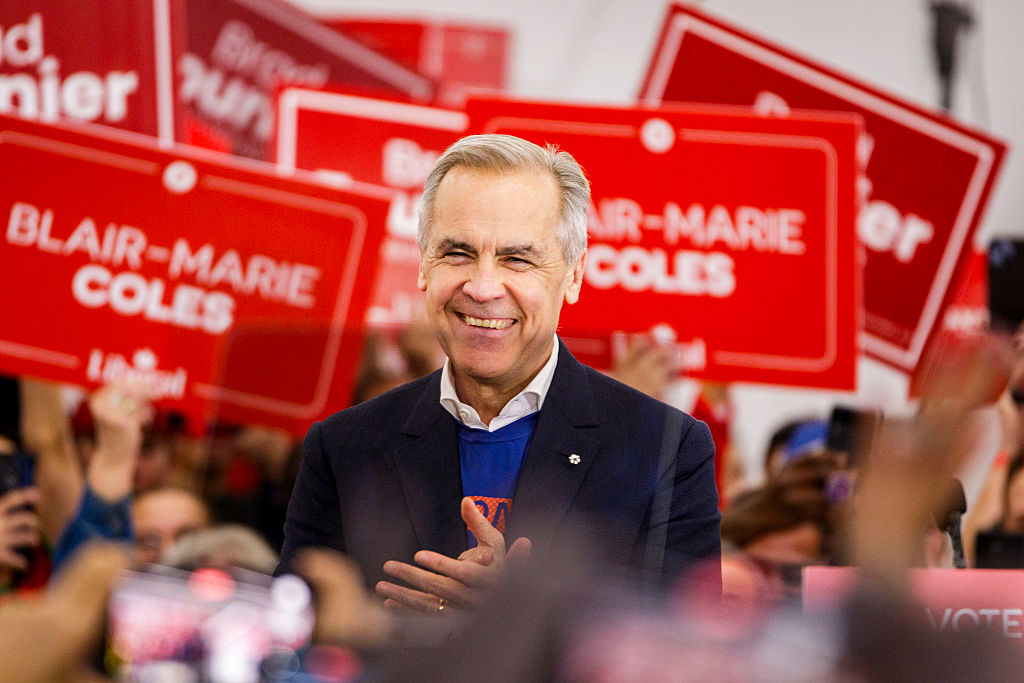
Mark Carney, Canada’s “freshly minted prime minister”, has Donald Trump to thank for putting him there, says The Times. “As a Lazarus act”, he “takes some beating”.
Carney (Harvard, Oxford, Goldman Sachs, Bank of Canada, Bank of England) didn’t even have a parliamentary seat when he was elected leader of Canada’s Liberal Party in March.
He served as prime minister for only nine days before calling a snap election. His tenure “should have been among the shortest in Canadian history”.
Sign up to Money Morning
Don’t miss the latest investment and personal finances news, market analysis, plus money-saving tips with our free twice-daily newsletter
Don’t miss the latest investment and personal finances news, market analysis, plus money-saving tips with our free twice-daily newsletter
In January, the month Justin Trudeau resigned after nearly ten years in office, the Liberals were “trailing by 26 points”. The victory of Pierre Poilievre, leader of Canada’s Conservatives, looked assured.
Anti-populist backlash
Now Poilievre is “history”, having lost his seat in Monday’s general election, while the Liberals, “despite being hobbled by their failure to grow Canada’s economy, build homes and evade scandal, are victorious”.
And Donald Trump can claim much of the credit. Trudeau’s unpopularity and Donald Trump’s threats to impose crippling tariffs on Canada and annex the country to make it the 51st state were a gamechanger, agrees Leyland Cecco in The Guardian.
Carney’s framing of his election campaign around these threats tapped into Canadians’ anger and elevated him to a global anti-Trump figure, heralding a possible backlash against nationalist populists elsewhere, says the Financial Times.
Australia’s incumbent Labor prime minister Anthony Albanese “may also see off a right-wing challenge on Saturday”.
However, “centrist celebration should be restrained”. Canada’s deep economic dependency on the US, which takes more than 75% of its exports, and Trump’s “direct menace to its sovereignty”, make it a “special case”.
The Liberals’ vote share of roughly 43.7% was also a narrower victory over the Conservatives’ 41.3% than the polls had predicted; the smaller parties were the “big losers”.
It was the best result in decades for the Conservatives. The Liberals secured 169 seats in the 343-seat parliament, meaning Carney needs to find three members from smaller parties to get his policies passed.
Nor are Carney’s key tasks easy. He needs, through a “delicate combination of inducements and retaliation threats”, to negotiate a new economic and security pact with Trump, or to “steel Canadians” to the pain if Trump “plays hardball”.
He also needs to boost productivity and end Canada’s reliance on the US by forging trade deals with allies in Europe and Asia.
Voters did not elect Carney for “his charisma or political acumen”, says The Economist. They embraced him because they felt he would do a better job of protecting their country from Trump.
But does he have the necessary “backbone”, asks Michael Taube in The Spectator. His “political inexperience”, “massive ego” and lack of original ideas (he kept much of Trudeau’s “terrible agenda” and stole from the Conservatives) led to a last-minute “resurgence” for Poilievre.
It wasn’t enough, but it left Canada with “another minority government” and a solid Conservative opposition with a leader currently outside parliament. What happens next? “That’s anyone’s guess.”
This article was first published in MoneyWeek’s magazine. Enjoy exclusive early access to news, opinion and analysis from our team of financial experts with a MoneyWeek subscription.



